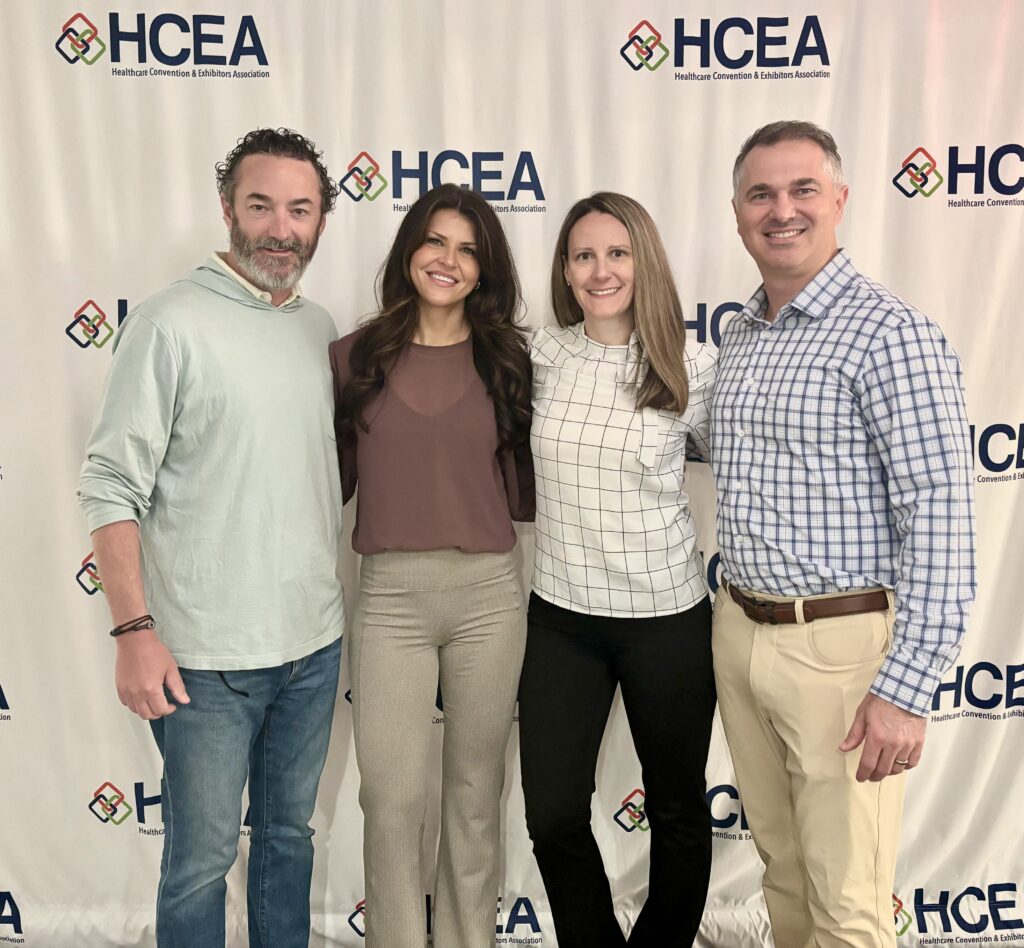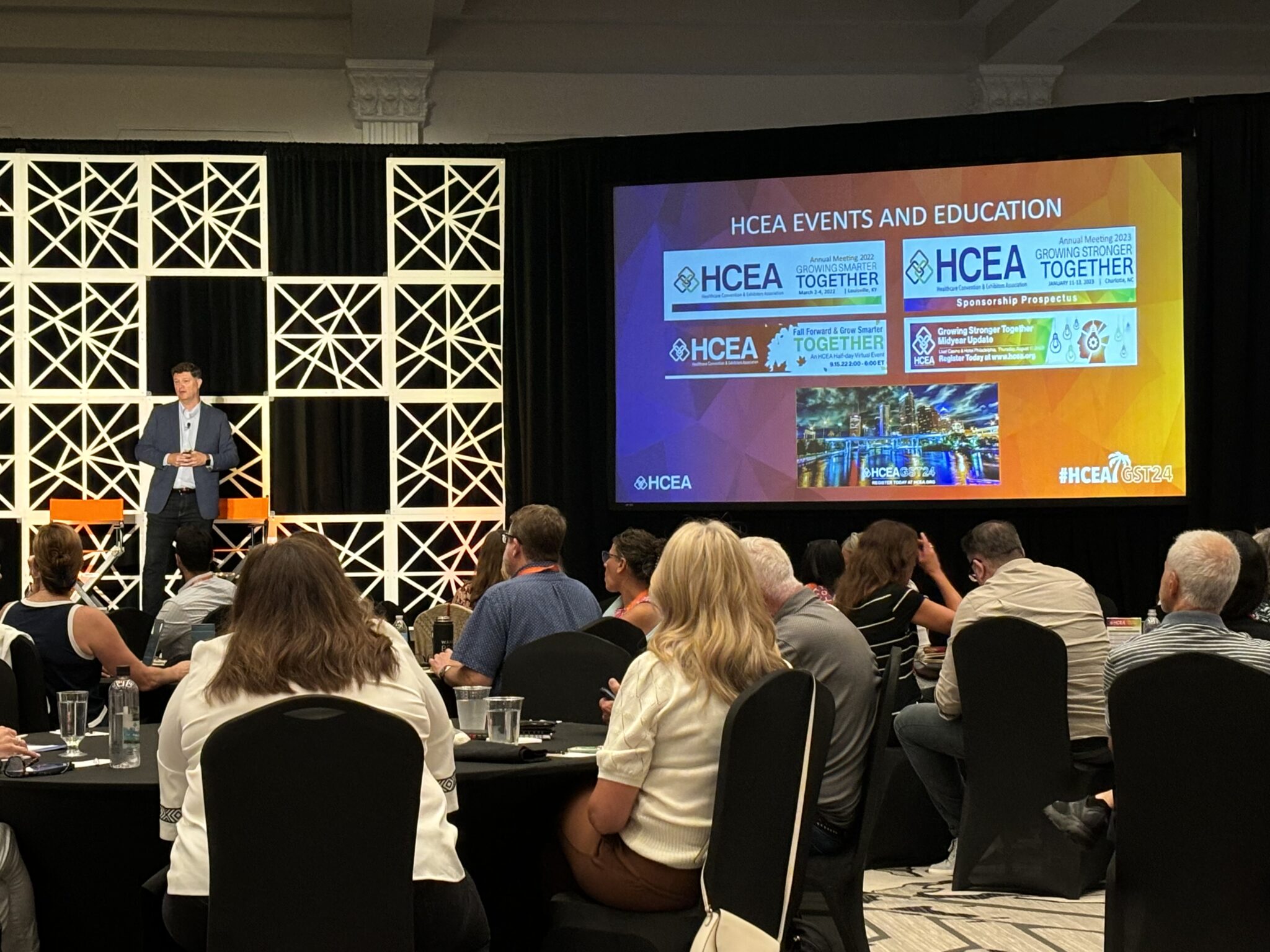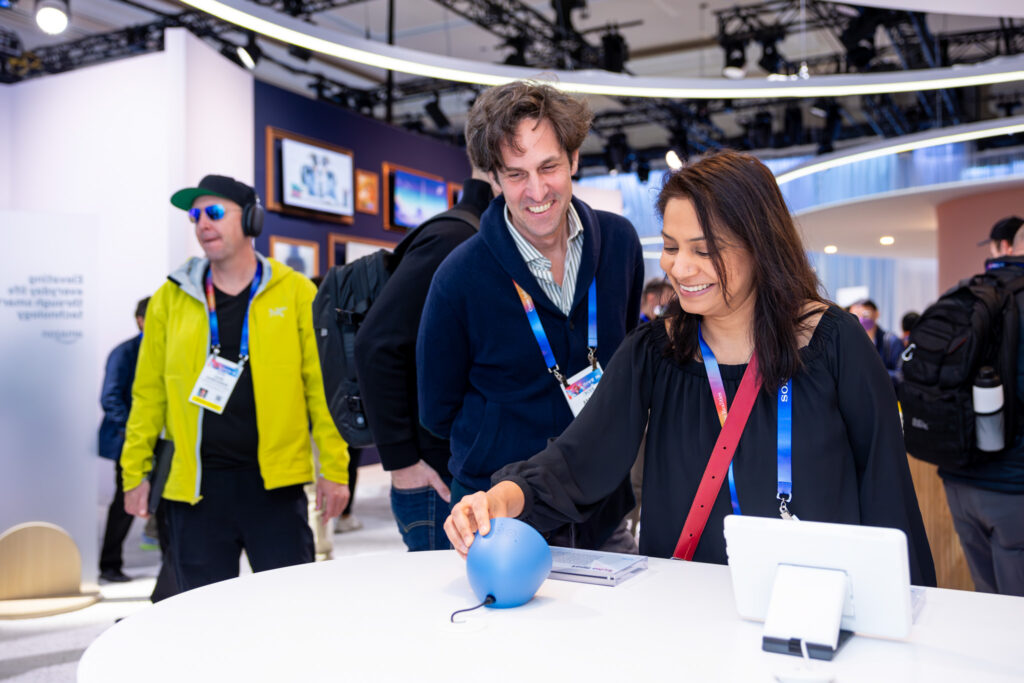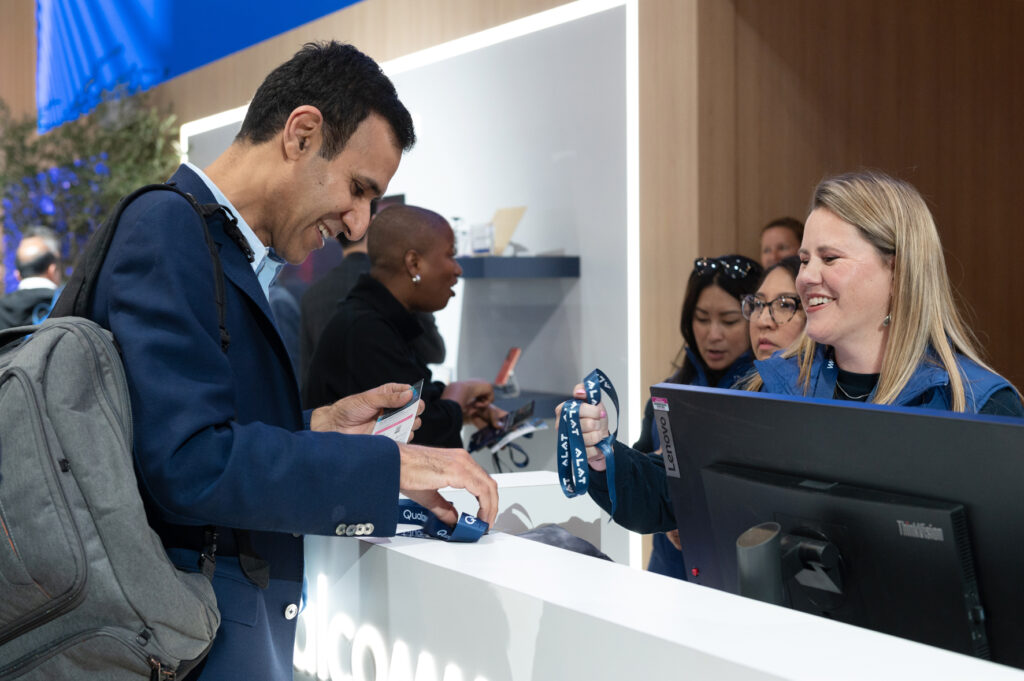Revolutionizing Healthcare Conventions: Key Takeaways from HCEA’s Growing Stronger Together 2024 Annual Event
As the healthcare conventions landscape continues to evolve, Healthcare Convention and Exhibitors Association’s (HCEA) annual Growing Stronger Together (GST) 2024 meeting provided a pivotal platform for industry professionals to gather insights and strategies aimed at modernizing their approaches. From groundbreaking sustainability practices to the transformative potential of artificial intelligence (AI), the annual event shed light on the future of healthcare conventions. Here’s a summary of our key takeaways from the sessions, presentations, and discussions held at GST24.
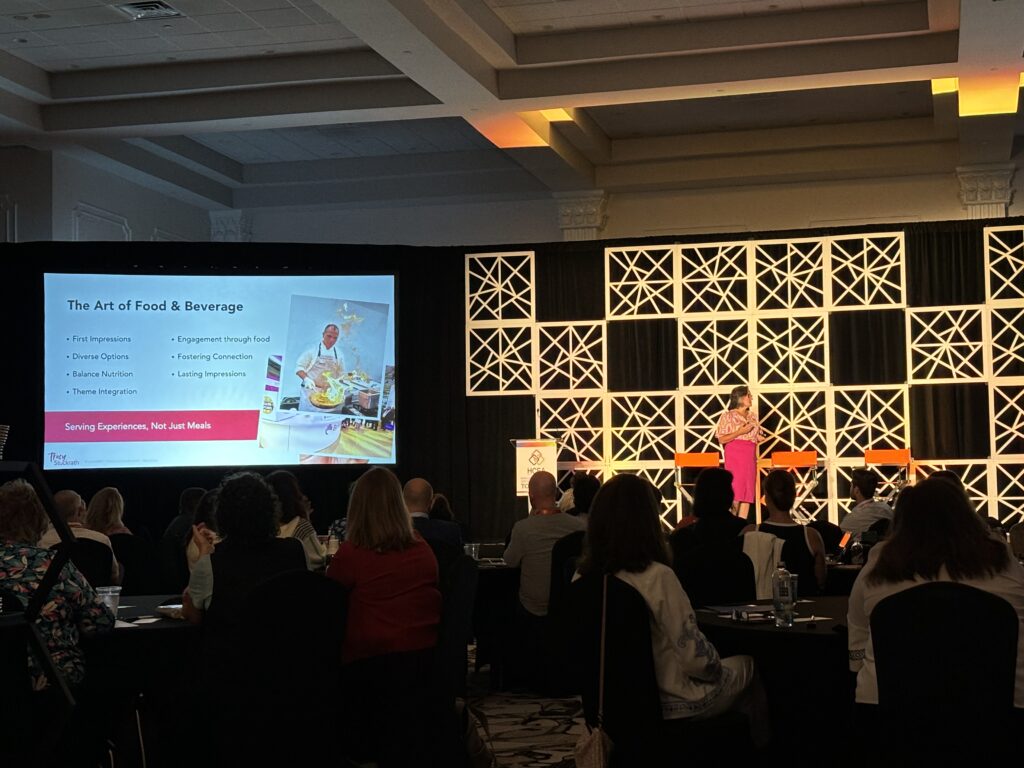
1. Modernizing Food and Beverage at Healthcare Conventions
Tracy Stuckrath’s opening session set the tone for GST24 by challenging the conventional approaches to food and beverage catering and hospitality at healthcare conventions. As the founder of thrive! meetings & events, Stuckrath emphasized the critical role that food safety, inclusivity, and sustainability play in attendee engagement. Drawing from her personal health journey and extensive industry experience, she advocated for reimagining food and beverage services to create equitable, memorable, and health-conscious experiences. Stuckrath’s insights highlighted that modernizing food offerings isn’t just about meeting dietary needs; it’s about turning each meal into a statement of care and inclusion that resonates with all participants and stakeholders.
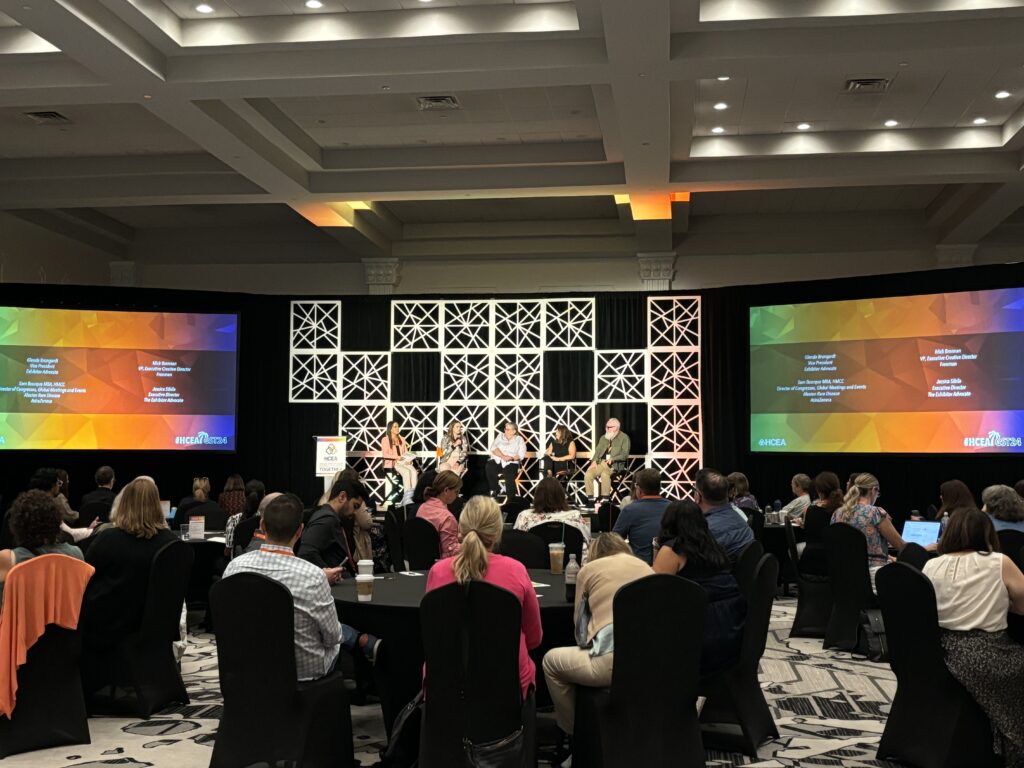
2. Sustainability: Practical Steps for Implementation
In her session, Glenda Brungardt, Vice President of The Exhibitor Advocate, along with Sam Bourque from Alexion Pharmaceuticals, tackled the pressing issue of sustainability in healthcare conventions. They provided actionable advice on where healthcare companies and brands can start with sustainability efforts, emphasizing that the impact of these initiatives extends to every aspect of event planning—from design and construction to catering and staffing. Brungardt and Bourque’s discussion illustrated that while sustainability can seem daunting, starting with small, manageable changes can lead to significant long-term benefits, both financially and environmentally.
3. Understanding the Role of AI in Healthcare Conventions
The session on AI addressed the current buzz and its practical implications for healthcare events. Attendees learned about best practices for implementing AI, understanding its policies, and balancing risks with rewards. The discussion revealed how AI can enhance productivity, creativity, and cost-efficiency in event management. By integrating AI, event planners can create more dynamic, responsive, and personalized convention experiences, though the technology is still evolving, and its full potential is yet to be realized.
4. Reevaluating Convention Costs and Efficiency
Jessica Sibila’s presentation focused on the need for improved efficiency and transparency in healthcare conventions. She critiqued the current state of healthcare conventions, highlighting the frustrations surrounding escalating costs and inefficiencies. Sibila’s fresh data and strategic insights offered a roadmap for healthcare convention marketers to address these challenges, suggesting that innovative associations are already taking steps to create win-win scenarios for exhibitors and attendees alike. This session served as a call–to–action for industry professionals to leverage their expertise to drive positive change.
5. Leveraging New Technology for Engagement
Greg Joswiak from Apple provided a forward-looking view on technology’s role in enhancing healthcare conventions. The introduction of technologies like the Apple Vision Pro signifies a leap towards immersive and engaging experiences for healthcare professionals (HCPs) and beyond. The session underscored the importance of selecting the right technology to effectively communicate content and engage HCPs. As technology continues to advance, healthcare conventions must stay ahead of the curve to offer cutting-edge experiences that captivate and inform their audiences.
6. The Impact of Outsourced Exhibit Staffing
A year after Novo Nordisk’s initiative to outsource exhibit staffing, the team revisited their strategy to evaluate its effectiveness. The session reviewed what worked, what didn’t, and unexpected outcomes, providing valuable lessons for other organizations considering similar approaches. This reflection highlighted the potential benefits and challenges of outsourcing, offering a nuanced perspective for companies looking to balance cost, efficiency, and sustainability.
7. Innovative Approaches by Associations
The panel discussion on “Innovation by Association” revealed how show managers are adapting to new priorities and challenges. From health equity zones to creative engagement strategies, the session showcased various initiatives that are reshaping healthcare conventions. By examining these innovative approaches, attendees gained insights into how associations are preparing for future trends and creating added value for delegates and sponsors.
8. Career Development for Convention Marketing Professionals
Jane Wolfe’s presentation provided a blueprint for navigating a career in convention marketing. She outlined steps to become a valued leader in the field, drawing on her extensive experience in strategic meeting management. Wolfe’s session was particularly beneficial for newcomers and seasoned professionals alike, offering practical advice on both career advancement and leadership development.
9. Navigating Mega Trends in Healthcare
Dr. Bill Trombetta’s final interview connected the dots between major healthcare trends and convention strategies. He discussed how mergers, value-based healthcare, and legislative changes are influencing healthcare convention planning. Trombetta’s insights provided a comprehensive understanding of how these trends impact convention strategies and the future direction of the healthcare events industry.
10. Benchmarking and Measuring Impact
The session on healthcare exhibitor benchmarks, sponsored by Reality Engineering, offered fresh data on return on experience (ROX) and return on emotion (ROE). Attendees learned how to compare their performance with industry standards and establish S.M.A.R.T KPIs. This data-driven approach is essential for optimizing exhibit impact and demonstrating the value of healthcare convention programs.
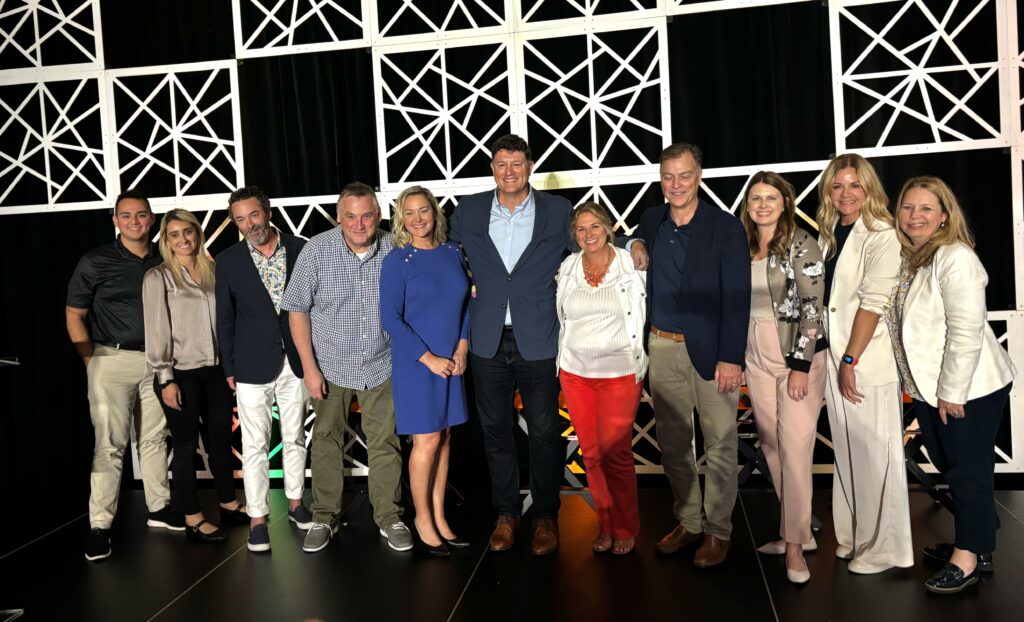
Conclusion
GST24 was a landmark event, offering invaluable insights into the evolving landscape of healthcare conventions. From embracing sustainability and AI to understanding new technologies and benchmarking performance, the event provided a wealth of knowledge for HCPs looking to innovate and excel in their roles. As the industry continues to navigate these changes, the takeaways from GST24 will serve as a vital resource for driving progress and ensuring the success of future healthcare conventions.
